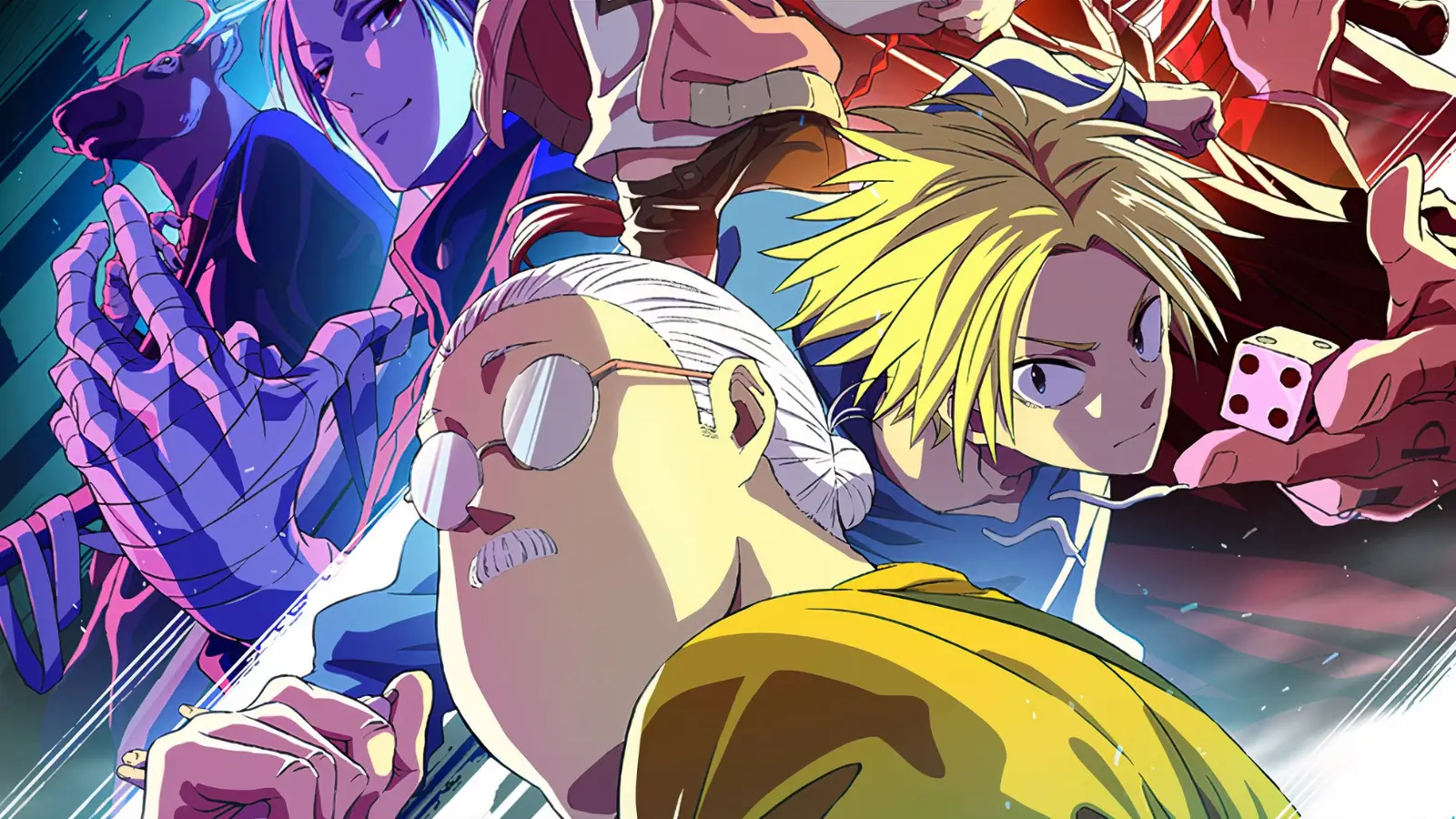
Anime history is full of unexpected turnarounds. Some series start off overlooked, criticized, or even written off entirely, only to later rise into the ranks of beloved classics. What seems like a stumble in the beginning can transform into brilliance once the story finds its rhythm or fans give it a second chance. These underdog titles remind fans that first impressions are not always the full story.
The following ten anime each began with challenges, from slow starts and lukewarm fan reception to outright skepticism about their potential. Yet through strong storytelling, emotional payoffs, and dedicated creators, they became masterpieces in their own right. If fans have ever dropped an anime too soon, this list might convince them to give it another chance, becuse that dropped anime may be an overlooked gem.
Snow White with the Red Hair
When Snow White with the Red Hair first aired, many dismissed it as just another shojo fairy tale knockoff. Its premise about a red-haired herbalist meeting a prince seemed too simple to stand out in a market full of high-drama romances. Early episodes were slow, focusing on gentle world-building rather than sweeping drama, leaving some viewers underwhelmed.
However, as the story unfolded, its charm became undeniable. Shirayuki’s independence and refusal to rely on Prince Zen made her one of shojo’s strongest heroines. Instead of clichés, the anime emphasized mutual respect and healthy relationships, refreshing in a genre often filled with melodrama. Over time, the show built a loyal following, proving that quiet elegance can rival flashier romance plots.
Delicious in Dungeon
Initially, Delicious in Dungeon sounded like a gimmick too silly to succeed, as a story about cooking monsters while exploring a dungeon. Many brushed it off as a novelty rather than a serious fantasy. Early chapters leaned heavily on quirky humor and food preparation, leading skeptics to believe it lacked depth. Even when the anime adaptation launched, doubts remained about its staying power.
Yet, the deeper story slowly won over audiences. Beneath the laughs and culinary antics lies a heartfelt and shockingly dark narrative about survival, teamwork, and grief. The balance between absurd cooking sequences and emotional character growth proved groundbreaking. By the time the anime hit its stride, it was clear Delicious in Dungeon was not a passing joke, it was a masterpiece blending comedy, fantasy, and human drama.
Kaiju No. 8
At first glance, Kaiju No. 8 seemed doomed to live in the shadow of Attack on Titan and other monster-battle juggernauts. Early chapters were critiqued for feeling too familiar: giant monsters, military squads, and a reluctant hero who gains unusual powers. Viewers questioned whether it could stand out in a saturated genre.
But the series quickly distinguished itself through its protagonist, Kafka Hibino. Unlike the typical young shōnen hero, Kafka is a middle-aged man who has failed to achieve his dreams. His struggles resonate with older fans who rarely see themselves reflected in anime. By leaning into themes of perseverance and maturity, Kaiju No. 8 carved its own legacy as a heartfelt monster epic.
Kimi ni Todoke: From Me to You
When Kimi ni Todoke: From Me to You debuted, many assumed it was just another high school romance, with its shy heroine and cheerful male lead. Its painfully slow pacing initially frustrated viewers, especially those who expected quick romantic developments. Some critics even dismissed it as boring, predicting it would fade among more dramatic shojo titles.
Instead, the anime blossomed into one of the most heartfelt romances ever made. Sawako’s journey from isolation to acceptance resonated deeply, with the anime portraying introversion and misunderstanding in an authentic way. The gradual romance between Sawako and Kazehaya became all the more powerful because of its realism. What began as a “slow burn” eventually became the gold standard for wholesome love stories.
TONIKAWA: Over the Moon for You
Upon release, TONIKAWA: Over the Moon for You was brushed off by some as gimmicky. A romance about a couple who marries almost immediately? Many thought the concept lacked depth and would run out of steam quickly. Its quirky humor and lighthearted style only reinforced the impression that it was disposable fluff.
Surprisingly, TONIKAWA thrived by flipping the usual romance formula. Instead of endless will-they-won’t-they tension, the anime explored marriage itself, which is something few romances dare to tackle. The sweetness of Nasa and Tsukasa’s relationship, coupled with hints of mystery about Tsukasa’s past, gave the story staying power. It grew from a seemingly shallow gimmick into one of modern anime’s most refreshing love stories.
Sakamoto Days
When Sakamoto Days began, some fans doubted whether its premise could work long-term. A retired hitman running a convenience store while still fighting in high-octane battles sounded like a one-joke manga stretched too far. Early on, many saw it as another action-comedy destined to fizzle out after its initial gimmick wore thin.
Instead, the series revealed layers of creativity and heart. Sakamoto’s transformation from feared assassin to gentle family man did not weaken the action, it strengthened it. The anime adaptation has highlighted how skillfully it balances comedy, intense fight choreography, and genuine emotion. What once seemed like a throwaway premise became one of the most exciting and heartfelt action series in recent memory.
Solo Leveling
At the start, Solo Leveling faced skepticism from traditional anime fans. Based on a Korean web novel and manhwa, some doubted it could compete with Japanese juggernauts. The “overpowered protagonist” trope initially drew criticism too, with viewers fearing Sung Jinwoo’s journey would lack tension or emotional depth.
Yet Solo Leveling turned that criticism on its head. Its jaw-dropping animation and escalating stakes showcased how to execute power fantasy right. Jinwoo’s evolution was not just about strength but also about loneliness, loss, and the sacrifices of carrying immense responsibility. By its peak, Solo Leveling proved that Korean adaptations could not only compete with but rival Japan’s best anime productions.
Steins;Gate
Few anime series have had as dramatic a turnaround as Steins;Gate. Early episodes were notoriously confusing and slow, causing many viewers to drop the show before it hit its stride. Its mix of technobabble and eccentric characters gave the impression of a messy sci-fi that lacked direction. Initial reception was lukewarm at best.
Then came the turning point. Once the time travel plot solidified, everything clicked into place. The story’s emotional weight, gripping suspense, and unforgettable twists transformed it into a modern masterpiece. Okabe and Kurisu’s relationship added heart to the dense sci-fi premise, making Steins;Gate both intellectually thrilling and deeply moving. What began as a flop turned into one of anime’s most celebrated classics.
Jujutsu Kaisen
Despite its massive popularity now, Jujutsu Kaisen did not instantly win everyone over. Early detractors called it just another Naruto-style shōnen with curses instead of ninjas. Some felt its supernatural battles were formulaic and doubted it could sustain momentum in such a competitive landscape. For a brief moment, it risked being dismissed as derivative.
Instead, Jujutsu Kaisen exploded into a cultural phenomenon. With MAPPA’s stunning animation, memorable fight choreography, and complex characters, the anime silenced skeptics. Yuji’s moral dilemmas, Gojo’s overwhelming charisma, and the emotional arcs of characters like Nobara and Megumi set it apart from typical shōnen fare. From would-be copycat to genre leader, Jujutsu Kaisen cemented itself as a modern classic.
Clannad
When Clannad first aired, many wrote it off as just another visual novel adaptation with a harem setup. Its early episodes leaned on light comedy and typical character archetypes, leaving viewers unconvinced it could deliver anything beyond clichés. Skeptics assumed it would fade into obscurity, forgotten among countless similar adaptations.



